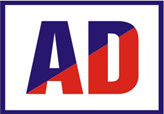Water tablets, additionally referred to as diuretics, are medications that are made use of to raise pee manufacturing in the body. They are frequently recommended to treat problems such as high blood pressure, edema, and particular kinds of kidney conditions. In this short article, we will certainly discover the numerous types of water pills, just how they function, their possible adverse effects, as well as when they are typically suggested.
Sorts Of Water Pills
There are several various provisine types of water pills, each with its very own mechanism of action as well as details signs. The four major kinds are:
1. Thiazide diuretics:
Thiazide diuretics function by inhibiting the reabsorption of salt in the kidneys, bring about boosted urine production. They are commonly prescribed to take care of hypertension as well as are thought about to be the first-line treatment for this problem.
2. Loop diuretics:
Loop diuretics, such as furosemide and also bumetanide, act on the loophole of Henle in the kidneys to avoid reabsorption of salt and also chloride. They are typically suggested for edema brought on by problems such as heart failure, liver condition, or kidney condition.
3. Potassium-sparing diuretics:
Potassium-sparing diuretics, such as spironolactone and also amiloride, job by obstructing the action of aldosterone, a hormone that advertises salt and also water reabsorption. They are commonly used in combination with other diuretics to prevent potassium loss.
4. Carbonic anhydrase preventions:
Carbonic anhydrase preventions, such as acetazolamide, job by inhibiting the enzyme carbonic anhydrase, which contributes in the reabsorption of bicarbonate in the kidneys. They are mainly used to deal with glaucoma and certain types of seizures.
It is important to keep in mind that the option of water pill relies on the person’s details condition and also medical history. Just a medical care apa itu cellarin specialist can identify which sort of diuretic is most suitable.
Exactly How Do Water Pills Work?
The major action of water tablets is to boost the excretion of water as well as salts through pee. By getting rid of excess liquid from the body, water tablets can help reduce swelling and also reduced high blood pressure. The specific system of action varies relying on the sort of diuretic:
- Thiazide diuretics decrease sodium reabsorption in the kidneys, causing raised pee result.
- Loophole diuretics prevent sodium and chloride reabsorption in the loophole of Henle, causing increased urine manufacturing.
- Potassium-sparing diuretics block the action of aldosterone, avoiding salt and also water reabsorption and also promoting potassium retention.
- Carbonic anhydrase inhibitors lower the reabsorption of bicarbonate in the kidneys, resulting in increased pee production.
It is necessary to comply with the prescribed dosage and also frequency of water pills as routed by a healthcare specialist. Taking more than the advised dosage can result in electrolyte inequalities as well as dehydration.
Potential Negative Effects of Water Tablets
While water pills can be reliable in taking care of certain clinical conditions, they can also cause adverse effects. Some usual negative effects consist of:
- Regular peeing
- Dehydration
- Electrolyte discrepancies
- Dizziness or impaired thinking
- Frustration
- Muscle aches
- Raised thirst
Serious negative effects are uncommon yet can take place. It is important to seek clinical attention if any one of the adhering to signs are experienced:
- Serious lightheadedness or fainting
- Breast pain or irregular heartbeat
- Extreme muscle mass weakness or pains
- Allergic reactions, such as breakout or difficulty breathing
It is vital to go over potential side effects and any type of concerns with a health care specialist before starting water tablet therapy.
When Are Water Tablets Prescribed?
Water tablets are recommended for various clinical problems, including:
- High blood pressure: Thiazide diuretics are typically the first-line treatment for taking care of hypertension.
- Edema: Loophole diuretics as well as potassium-sparing diuretics are generally suggested to decrease swelling triggered by fluid retention.
- Kidney conditions: Diuretics may be utilized to take care of specific kidney conditions that result in excess liquid buildup.
- Cardiac arrest: Loophole diuretics can assist eliminate liquid buildup in the lungs as well as various other locations of the body.
- Liver illness: Water pills might be suggested to handle ascites, a condition characterized by the accumulation of liquid in the abdominal area.
It is necessary to note that water tablets should only be taken under the assistance of a medical care specialist. They are not advised for fat burning objectives or as a means to clear out toxins from the body.
Conclusion
Water pills, or diuretics, are medicines frequently prescribed to boost urine production as well as decrease liquid accumulation in the body. They can be reliable in handling problems such as high blood pressure, edema, and also certain kidney conditions. Nevertheless, they should just be made use of under the advice of a medical care professional and also prospective adverse effects must be thought about. Water pills play an important role in clinical treatment, however it is essential to follow the prescribed dosage as well as discuss any type of interest in a healthcare provider.

